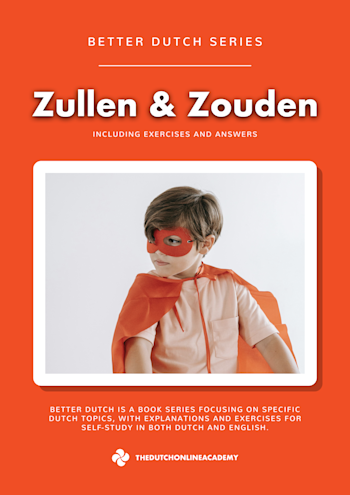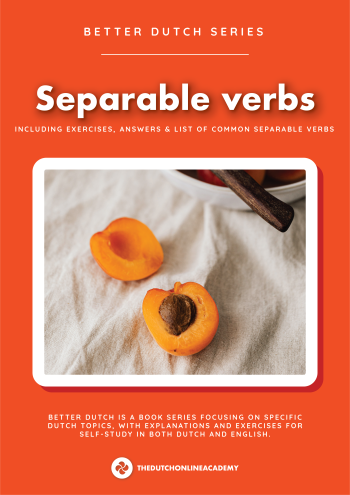Learn the theory
The Dutch word ‘Wel’ has different meanings.
We will talk about five uses of WEL in this article!
1. The opposite of niet
This use of WEL does not really have a real translation in English. In English you could put an emphasise on the word "do" or "does" to get the same effect. Let's look at some examples.
- Ik dacht dat je niet van chocolade hield? Antwoord: Ik hou wel van chocolade!
- I thought you didn't like chocolate? Answer: I dó like chocolate!
- Je lust geen spruitjes, geen aardappelen en geen worteltjes. Wat lust je wel?
- You don't like sprouts, potatoes and carrots. What dó you like?
Note that this “wel” sometimes has a strong meaning, especially when it is used after a negation like in the examples above.
2. Not a big deal
You can also use WEL in a less clear contrasting way, then it is more a way to change the mood of the sentence slightly, as if it the action is not such a big deal.
- Wie kan deze tekst voor mij vertalen? Antwoord: Ik kan dat wel doen (bijna hetzelfde als: ik kan dat doen).
- Who can translate this text for me? Answer: I can do it (not a big deal).
- Ik kan vanmiddag wel boodschappen voor je doen, als je wilt (bijna hetzelfde als: ik kan vanmiddag boodschappen voor je doen, als je wilt).
- I can do the groceries for you this afternoon, if you want (not a big deal).
3. A big number (as much as)
You can show that a number is big by using "wel" in front of it.
- Ze is wel drie weken ziek geweest!
- She had been ill for as much as three weeks!
- Hij heeft wel twintig landen bezocht in een jaar!
- He has visited as much as twenty countries in a year!
4. Fairly, pretty
- Je bent hard gevallen! Gaat het wel? > Ja, het gaat wel, dank je.
- You fell hard! Are you okay? > Yes, I'm fine/it goes fairly well, thank you.
- Petra kan wel mooi zingen.
- Petra can sing fairly nice.
If someone asks how you are doing, you can't say "Het gaat wel" meaning that "it goes well". This means something as "fairly well", "okayish"
You can combine this "wel" well with "best".
- Ik ben best wel blij met dit cadeau.
- I am pretty happy with this present.
You can read more about best here
5. Making a concession (this one looks like nr. 1)
This "wel" can be easily removed from the sentence. It adds a certain tone. Let's take a look at some examples:
- Ik spreek geen Engels, maar ik spreek wel Frans.
- I don't speak English, but I dó speak French.
- Hij let niet op, maar hij is wel aanwezig.
- He does not pay attention, but he ís present.
- Mijn oma was ziek, maar ze is bijna beter. Ze moet het wel rustig aan doen
- My grandmother was ill, but she is almost better. She does have to take it easy.
You can easily leave “wel” out here, but it tempers a little bit what is said in the first sentence. She does have to take it easy. It feels like you could add "though" to the sentence. She does have to take it easy, though.
- Mijn opa is soms koppig, maar ik hou wel heel veel van hem.
- My grandfather is sometimes stubborn, but I do love him very much.
It might not exactly translate to this, but it catches the same tone. As you can see, you could also leave "do" out in the English sentence, changing the tone slightly.
Some ideas to keep learning
Do you want to learn more about Dutch particles? We will keep adding information about Dutch learning and Dutch grammar exercises!
comments
Login to leave a comment



![Learn Dutch with The double infinitive in Dutch [list of auxiliary verbs included]](https://images.ctfassets.net/f8l4gy5qxe00/7fpaN2iBE3h1xS7LRL8c0h/3bbebedc080cbf7eece73424c8e3918f/The_double_infinitive.png?w=350&h=495&q=50&fm=png)